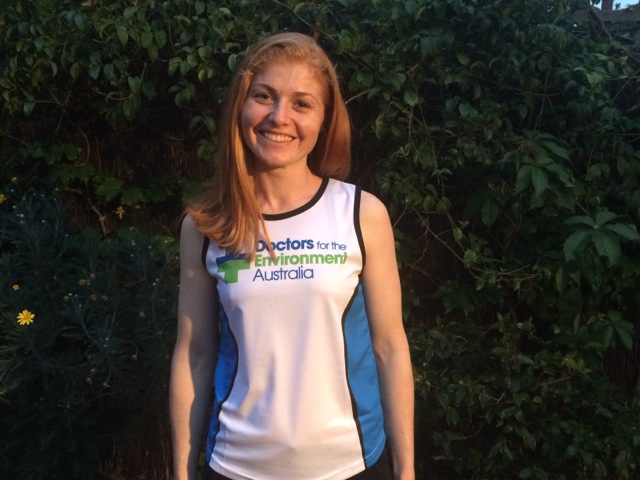The Royal Australasian College of Physicians (RACP) this week staged a Day of Global Action to mark the start of the Doctors For Climate Action campaign, calling on world leaders to commit to real action at the UN Climate Change Conference in Paris in December.
The campaign, backed by 58 international health and medical organisations, aims to bring the medical voice “to the forefront of the debate on climate change,” it said in this statement.
We can no longer ignore the very real impact of climate change on the health of each and every individual in Australia and New Zealand, and around the world.
Doctors, health professionals and anyone concerned about the health impacts of climate change can add their names to the call for action. See the website too for facts and resources, and read the campaign’s consensus statement.
Meanwhile, PhD student Annabelle Workman outlines in this article below why she is a member of the Team DEA (Doctors for the Environment Australia) in this weekend’s Melbourne Marathon Festival.
***
 Annabelle Workman writes:
Annabelle Workman writes:
Running for life
I relished the recent warm weather that welcomed Melbournians to spring – my favourite season – particularly given I’ve been training for the Melbourne Marathon Festival’s 10km event. Training in the sunshine always beats running in the rain, but as the hot days continued I was reminded to be careful what I wish for.
A strong El Niño forecast until early 2016 by the Bureau of Meteorology could mean reduced rainfall and higher than average temperatures into summer for South-East Australia. We need look no further than the recent fires in Lancefield as an example of the direct consequences of such predictions. Australia is not the only country affected by such changes; according to the United States’ National Oceanic and Atmospheric Administration, average global land and sea temperatures for June 2015 represented the highest on record.
As a runner, these changes translate to either early-morning starts or late-night jaunts. As an individual concerned about the impacts of climate change, these changes translate to a persistent unease. I consider the environment, my health and the health of my loved ones to be precious assets, which are significantly threatened by climate change.
Precipitated by the widespread use of fossil fuels (coal, gas and oil), climate change is associated with a host of adverse health impacts. These include cardio-respiratory and mental illnesses, heat stress, heat stroke, and infectious and pandemic diseases, all of which are likely to be exacerbated as climate change continues unabated. These diseases severely impact the most vulnerable in society – women, children, and minorities – but will ultimately affect us all. Ambitious climate action is essential to mitigate climate-related health risks.
I began my PhD this year determined to research the area of climate change and health.
My co-supervisor is a member of the advocacy organisation Doctors for the Environment Australia, which is entering a team in the Melbourne Marathon Festival. The 50 doctors and medical students with their friends and family are raising funds for DEA so this organisation can continue its fierce advocacy for our health and the health of the planet on which we depend.
Joining Team DEA in the Melbourne Marathon Festival is just one way to demonstrate support and spread the message.
As professionals responsible for protecting and improving individual and population health, doctors play a pivotal role in raising awareness about the health impacts of climate change. And in a year where global negotiations on reducing our carbon emissions are set to shape the next two decades, raising awareness of the health impacts of climate change has never seemed more critical.
While I run in the present, my motivation is partially nested in the past and in the future. In the lead-up to losing my mother to non-genetic breast cancer, running became an effective stress management strategy; it provided both physical and spiritual nourishment, and a much-needed distraction when the pain was difficult to bear. Five years on, I still feel closest to my Mum when I run.
Looking forward, my motivation to run is perpetuated by my two-and-a-half year old. My girl is an energetic and vivacious little soul, who loves to be active and who thrives in nature. She already appreciates her natural environment; it takes us three times as long to walk to the bus given we have to collect litter along the way. Reinforcing her love of activity and the outdoors reminds me of the importance of the work I’m doing, which I hope will help to see her grow into a world in better shape than when she entered it.
Annabelle Workman is a member of Team DEA in the upcoming Melbourne Marathon Festival on 18 October. You can support Team DEA here
She is also a PhD student at the EU Centre on Shared Complex Challenges and the Australian-German Climate and Energy College at The University of Melbourne.
